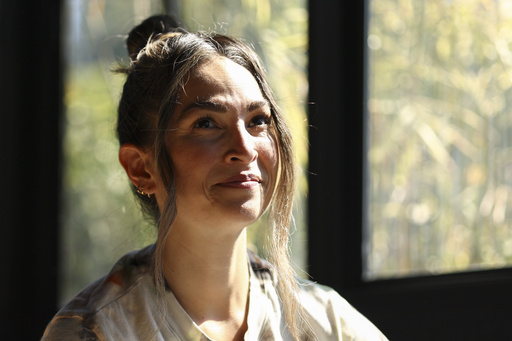As the pivotal presidential election draws near, many individuals might find themselves grappling with anxiety, distress, or even conflict with family and friends. However, there are productive ways to cope with the swirling uncertainties.
Meditation and mindfulness expert Rosie Acosta emphasizes the importance of focusing on breathing as a means to regain a sense of control amidst the chaos of election season. Working with Headspace, a mental health platform, Acosta encourages people to utilize mindful practices to center themselves rather than become overly anxious about potential outcomes. “I have the power over my breathing… I can use mindfulness to remain present instead of dwelling on the election’s results,” Acosta stated. Her contributions to Headspace’s collection, which includes guided meditations aimed at easing election-related stress, highlight the necessity of harnessing one’s mental power during turbulent times.
This election cycle has not been without unexpected developments, including President Biden’s withdrawal from the race and Vice President Harris gaining prominence within the Democratic Party, not to mention recent assassination attempts aimed at former President Trump, who is the Republican contender. According to a survey, nearly 75% of Americans believe the upcoming election holds significant importance for the future of democracy, although opinions on candidates’ threats vary widely based on political beliefs.
Acosta recalls a past holiday gathering where political disagreements marred the festive atmosphere, transforming it into a battleground of opinions rather than a celebratory occasion. From that experience, she learned to set boundaries with family members and engage in conversations that reunited rather than divided them. Suggestions include steering away from contentious topics during family gatherings and redirecting the discussion towards shared experiences, which can foster stronger connections.
To further assist citizens as they navigate election anxiety, Headspace partnered with When We All Vote, a voting initiative led by former First Lady Michelle Obama, to provide an array of free tools aimed at reducing stress during this politically charged period. Resources available include a stress quiz that helps individuals understand their emotional state and access to a voter registration portal. “This initiative is inclusive, supporting individuals regardless of political views and backgrounds,” stated Christine Evans, Headspace’s president.
The Rev. Cynthia O’Brien is aware that many feel particularly anxious around family gatherings like Thanksgiving. O’Brien, who serves as a pastor and is involved in nonprofit efforts to reduce polarization, suggests keeping political conversations to more intimate settings rather than the dinner table to maintain harmony among loved ones. She encourages open dialogues while also respecting differing viewpoints to cultivate understanding. Training focuses on listening attentively and sharing personal narratives to explain one’s perspectives, devoid of the pressure to convince anyone of the validity of their arguments.
“Healthy discourse is essential for our democracy; we should engage in conversations without resorting to shouting,” O’Brien remarked.
Dr. Petros Levounis, a psychiatry expert, reassured those feeling anxious that they are not alone in their feelings. He emphasized the importance of self-care during such times, advising individuals to prioritize proper nutrition, sleep, and regular exercise as foundational elements for improving mental health. Alongside these habits, integrating mindfulness practices, such as breathing exercises, can help alleviate stress. He warned against the use of alcohol as a coping mechanism, asserting that it often exacerbates anxiety rather than mitigating it.
Colleges and universities are also stepping up to offer support for students experiencing election-related stress. According to Shauna Olson Hong, a counseling services director, many students, particularly those from marginalized communities, face unique pressures during this political season. To address this, counseling center resources include strategies for moderating news consumption, especially before bedtime, and being conscious of social media interactions.
Encouraging effective engagement and community involvement could alleviate feelings of helplessness during this time. “Staying stagnant in worry only amplifies anxiety. Taking actionable steps towards advocacy can provide a sense of control,” emphasized Hong.
